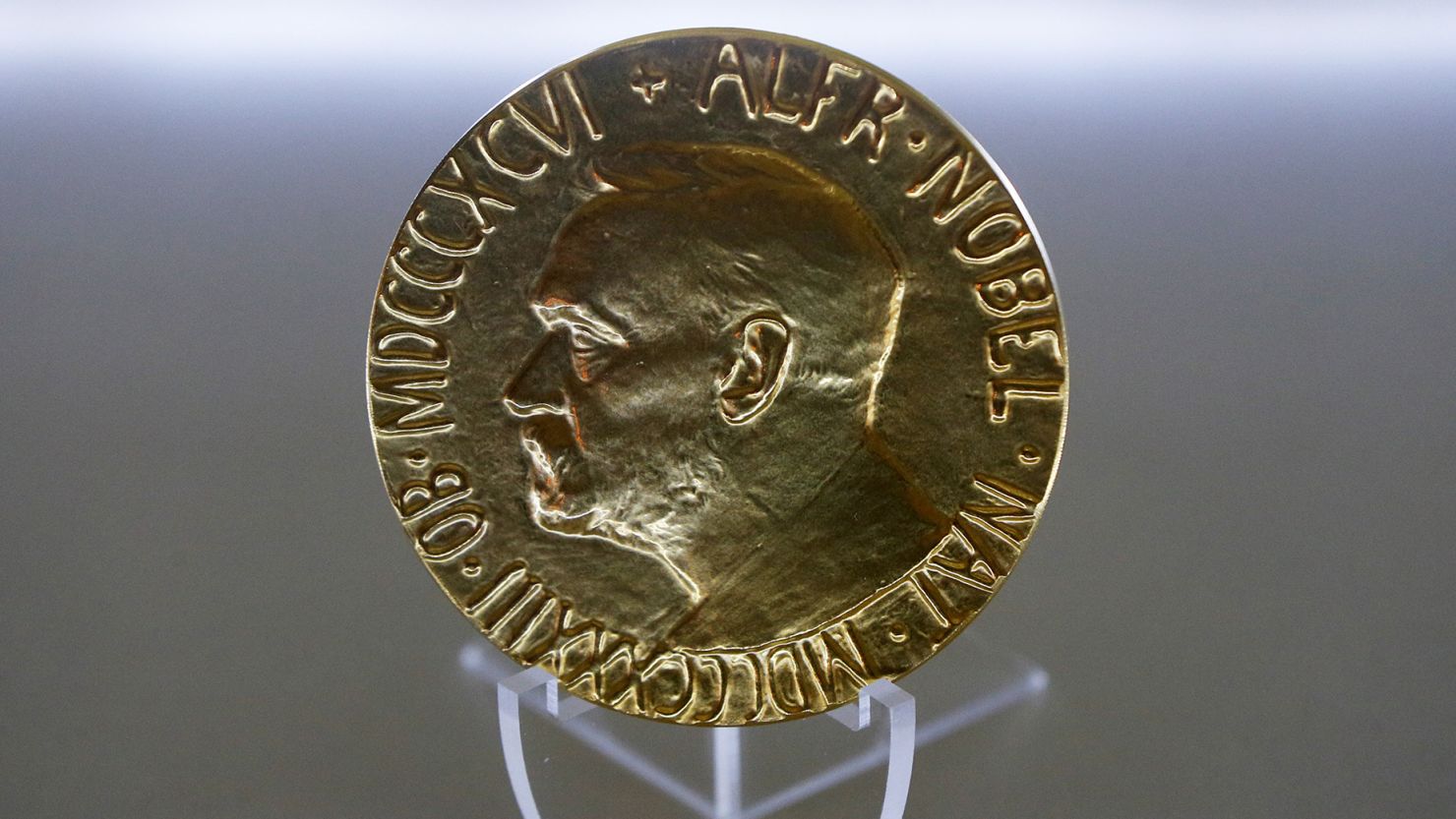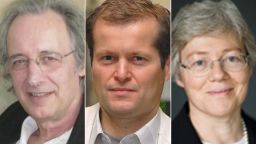The Nobel Peace Prize will be awarded in Norway on Friday, as Russia’s brutal invasion of Ukraine rages on and other flashpoints threaten to ignite across the globe.
Given that many efforts to promote peace have grown increasingly frustrated, to some observers this seems an inauspicious time to award one of humanity’s most coveted accolades.
“There’s not a lot of peace around at the moment, so it’s not clear that there’s an outstanding peacemaker to give the award to,” Dan Smith, director of the Stockholm International Peace Research Institute (SIPRI), told CNN.
But the peace prize can serve as a beacon of hope in fraught and fractured times.
“I think it’s precisely in a situation like this that the peace prize becomes particularly important. It’s necessary to point to achievements and to contributions that are important and happen everywhere in the world,” Henrik Urdal, director of the Peace Research Institute Oslo (PRIO), told CNN.
The Nobel prizes are notoriously difficult to predict. The Nobel committee announces the number of nominees, but keeps their names closely guarded and does not release a shortlist. But experts have picked out a series of potential frontrunners – while stressing that the committee seems to delight in making surprise choices.
The impact of war in Europe
This year – as last – Ukrainian President Volodymyr Zelensky sits atop many bookmakers’ list of laureates-in-waiting. But Nobel specialists have been quick to dismiss such speculation, saying it is rare for the peace award to go to a wartime leader.
“It would be like saying in 1941 that (then-British Prime Minister) Winston Churchill should get the Nobel Peace Prize. What he was doing at the time was trying to win a war. That’s what Zelensky is trying to do now,” Smith, of SIPRI, said.
“My view is, if and when he gets the chance to lead his country into peace, then he will probably get the award and be widely seen as a very worthy winner,” Smith added.
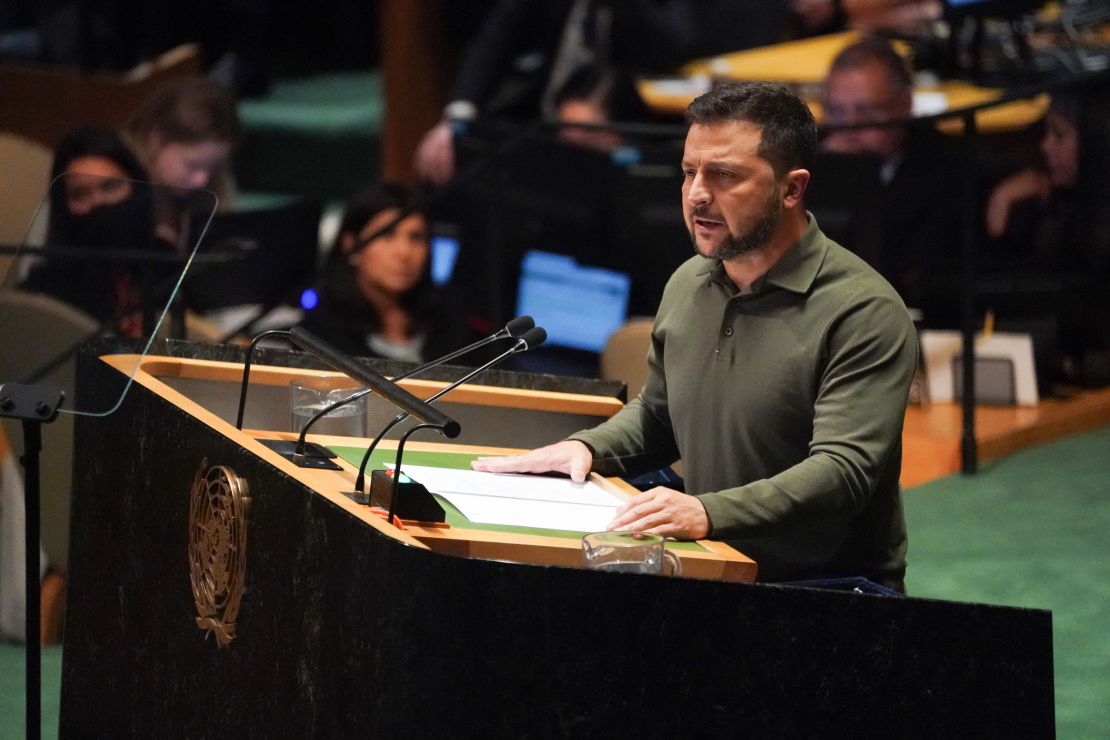
Urdal said that many bookmakers were cynically tipping Zelensky for the award simply because “he’s a well-known name.”
“Bookmakers here are trying to find candidates that people are willing to put money on – well, lose money on,” Urdal continued. “I don’t consider that to reflect any real information about the likelihood of him getting the prize.”
While the prospect of a wartime leader winning the award appear remote, the war in Ukraine has spurred peacemaking efforts from a number of international organizations who stand a chance of clinching Friday’s honor.
In his annual much-coveted shortlist of frontrunners for the prize, Urdal included the International Court of Justice (ICJ) as a potential candidate, for its efforts to promote peace “through international law, akin to promoting peace congresses, another achievement highlighted in Alfred Nobel’s will (the document that established the Nobel prizes in 1895).” Shortly after the invasion of Ukraine, the ICJ ordered Russia to “immediately suspend military operations.”
A related – but potentially more explosive – choice would be the International Criminal Court (ICC), which in March issued an arrest warrant for Russian President Vladimir Putin for an alleged scheme to deport Ukrainian children to Russia. Signatories to the ICC’s Rome Statute are obliged to arrest Putin if he sets foot in their countries.
But while Urdal has tipped both bodies as worthy winners, both they and Zelensky may be overlooked because the past two peace prizes were awarded to advocates and organizations from the same part of the world.
The 2022 prize was awarded to human rights groups from Russia and Ukraine – Memorial and the Center for Civil Liberties – and the jailed Belarusian advocate Ales Bialiatski. The year before, Russian journalist Dmitry Muratov also shared the award for his efforts to safeguard freedom of expression. Bialiatski remains in prison, while Muratov has been branded a “foreign agent” by a Russian law attempting to limit the freedom of the press.
“There have been two prizes in a row now that have pointed to Ukraine specifically and to Russia. I think the committee would likely want to try to point to other geographic areas,” Urdal added.
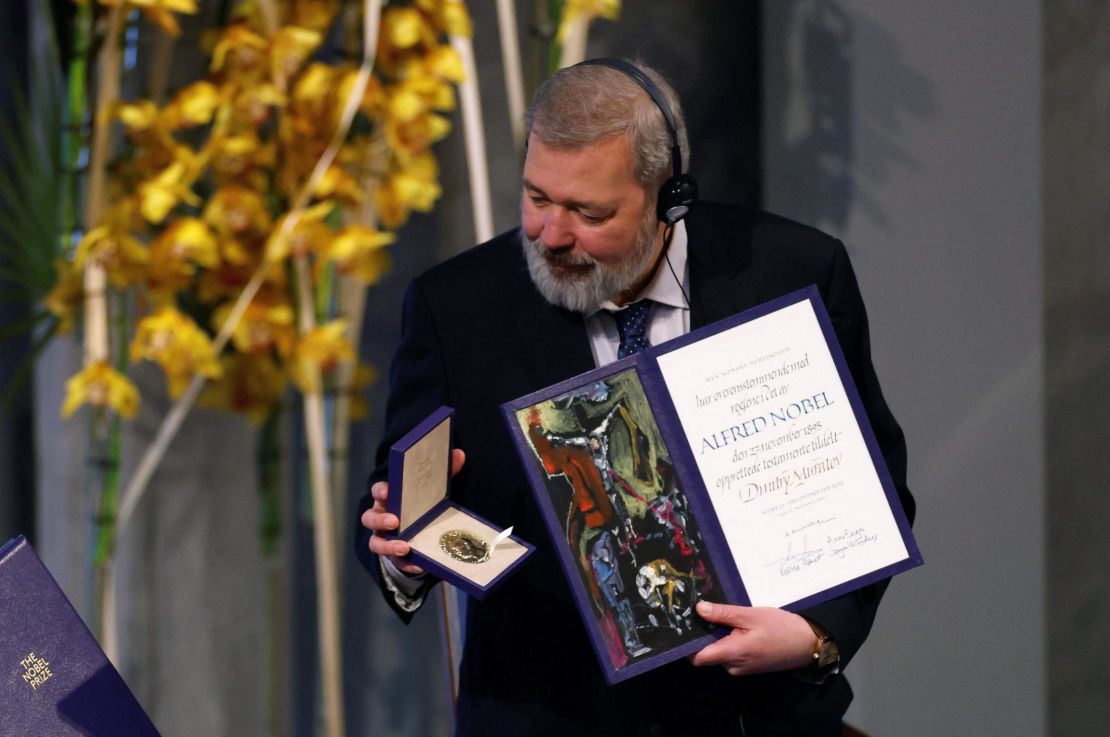
A growing climate disaster
While the award will be announced Friday, recipients do not receive their prizes until an official ceremony in December. By this time, Smith pointed out, the world will be going through an “El Niño” winter – when ocean temperatures are warmer than normal for an extended period.
For Smith, El Niño is set to round off a year in which the climate disaster has become clear to all.
“I think the hunger stones (which mark historic droughts) appearing in the rivers last year, the most serious drought in China while records have been kept, flooding of 35% of Pakistan – that was 2022,” he said.
This year, there have been “wildfires in Canada which produced smog in New York. The sargassum (seaweed) that is washing up on the beaches of Mexico in record amounts. The hottest temperatures ever in this place, that place and the other… And as yet El Niño hasn’t kicked in.”
Both Smith and Urdal said that climate is likely to be high on the committee’s agenda this year, and suggested that it could be tied to another prominent issue – the rights of indigenous peoples.
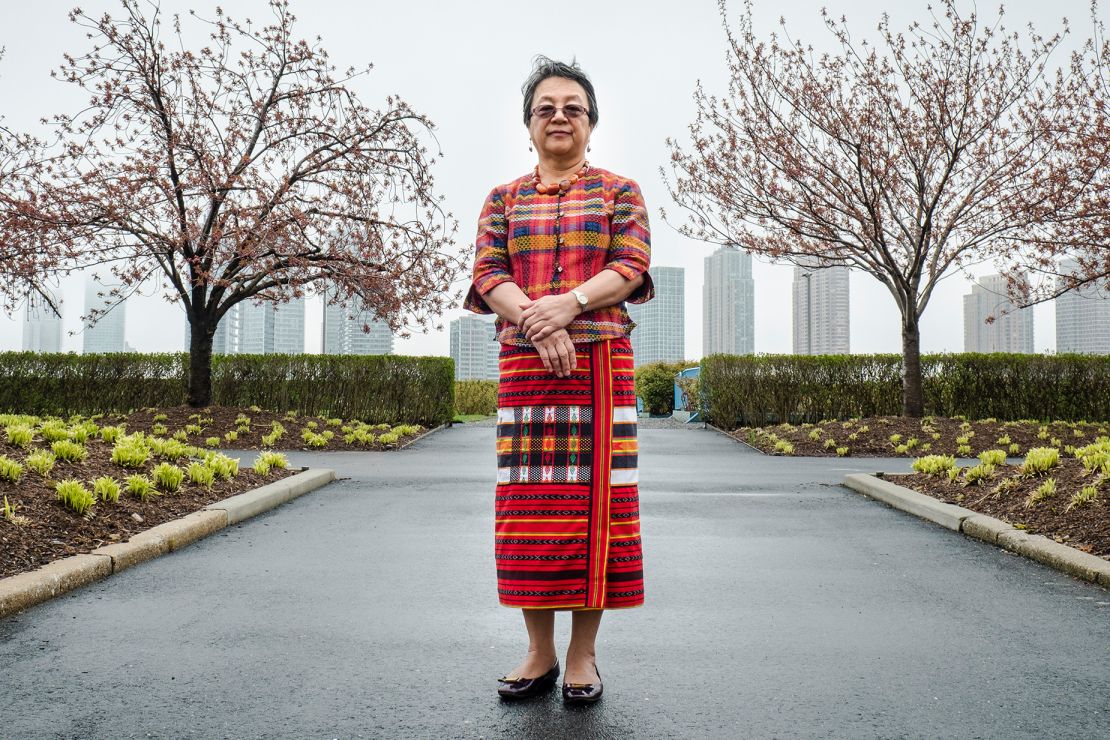
“Climate change is also threatening the ways of life for many of these indigenous groups,” Urdal said. Awarding a prize to the representative of indigenous groups could be “a good way to connect human rights and group rights to climate change and to environmental issues more broadly.”
The rights of indigenous peoples are likely to be “weighing on the committee’s mind,” Urdal continued, because the announcement comes shortly after Norway launched a report on truth and reconciliation in Norwegian society with the country’s indigenous Sami people.
In his shortlist, Urdal named Victoria Tauli-Corpuz, a Filipino activist and former chair of the UN Permanent Forum on Indigenous Issues, and Juan Carlos Jintiach, the Ecuadorian leader of the federation representing indigenous organizations in the Amazon basin, as potential winners.
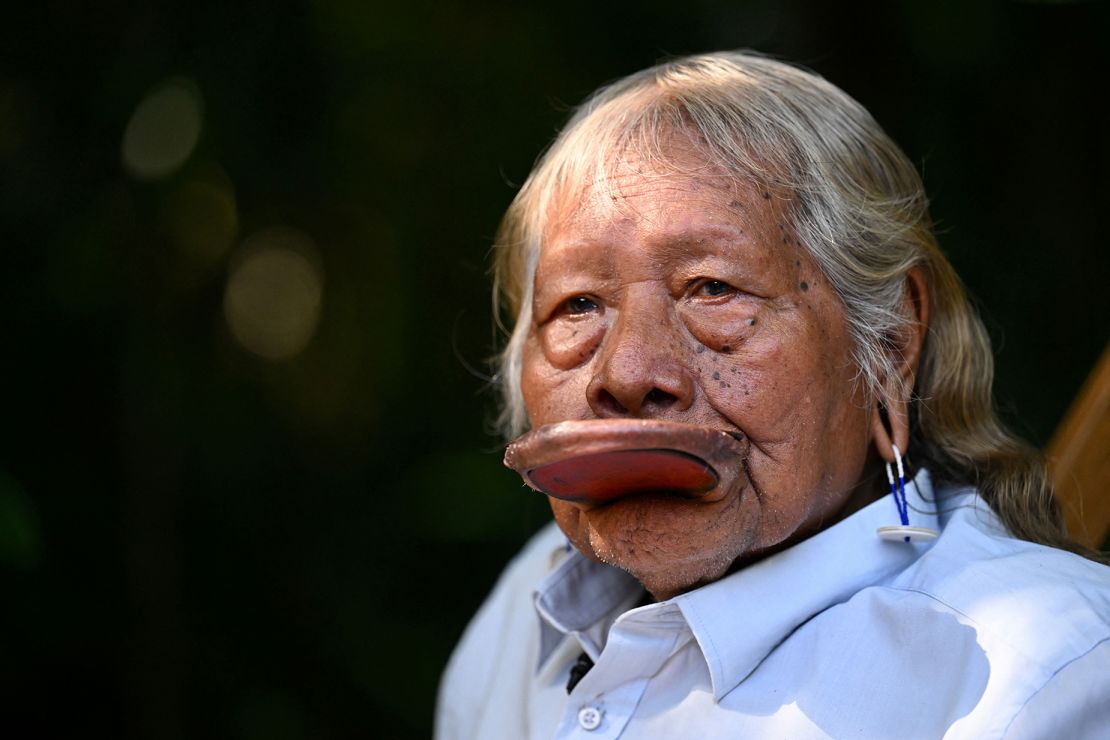
Smith also tipped Chief Raoni Metuktire, leader of the Kayapo People in the Brazilian Amazon, who recently spoke at the Amazonia summit convened by Brazil President Lula da Silva, for the award.
“We need to be listening a little bit more to indigenous people whose rights can all too easily get trampled over,” Smith added.
